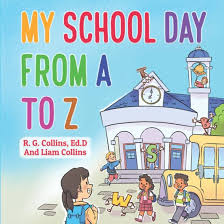The Legacy of Mrs Biggs in British Television

Introduction
Mrs Biggs, a British television drama that first aired in 2012, continues to have a significant impact on viewer engagement and storytelling in the UK. The series explores the life of Charmian Biggs, the wife of notorious criminal Ronald Biggs, who famously escaped from prison in the Great Train Robbery of 1963. The show not only depicts the challenges and tribulations faced by Mrs Biggs but also serves as a commentary on the societal perceptions of crime and punishment in England.
Main Body
The drama, which featured BAFTA-winning actress Anna Maxwell Martin in the titular role, quickly became a household name. The well-researched narrative did not shy away from showcasing the emotional turmoil experienced by a woman living in the shadows of her husband’s notorious actions. In a time when television was exploring darker themes linked to crime dramas, Mrs Biggs carved a niche for itself by blending personal struggles with the exploration of morality and social justice. The character of Charmian serves as a relatable figure for many viewers, highlighting themes of love, loyalty, and the complexities of human relationships amidst scandal.
As the series progressed, it received mixed reviews, often praising the strong performances but critiquing the pacing and production choices. Regardless, it managed to secure a dedicated audience, with discussions resurfacing periodically as anniversaries of the real events took place. This speaks volumes about the show’s ability to resonate across generations, maintaining relevance through social dialogues pertaining to crime and moral accountability.
Mrs Biggs received a considerable amount of media attention, partly because it was based on real events. Aspects of Ronald Biggs’ life and Charmian’s contributions to their shared history were explored through imaginative storytelling. It provided insight into the life of a woman who, despite her husband’s actions, upheld her family and navigated the complexities that arose from her association with crime.
Conclusion
As we reflect on Mrs Biggs, it is clear that the series has left an indelible mark on British popular culture. Its unique positioning at the intersection of crime drama and biographical storytelling ensures its enduring legacy. With the recent surge in interest in true crime narratives within television and film, the tale of Mrs Biggs may inspire new adaptations or series that examine similar themes. Looking ahead, the accomplishments of Mrs Biggs mark an important conversation starter regarding crime, morality, and the narratives of those too often overshadowed in history. The relevance of such storytelling in contemporary society cannot be understated, as it continues to shape our understanding of the human experience in the face of adversity.









